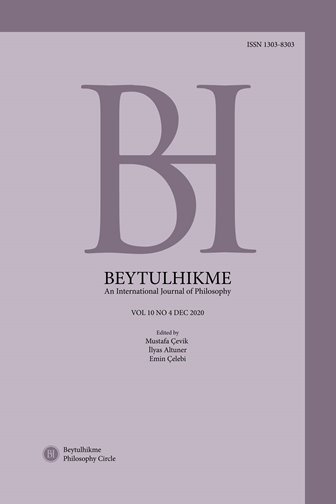Author :
Abstract
Makale, modern küreselleşme süreçleri bağlamında değerlerin sivil toplum ve Hukuk devletinin oluşumu üzerindeki etkisinin sınırlarının incelenmesine ayrılmıştır. Bunu yapmak için, sistem yöntemi, mantıksal-semantik yöntem, belgesel analiz, karşılaştırma yöntemleri vb.gibi genel ve özel bilimsel bilgi yöntemleri kullanılır. bu çalışmada kullanılır. Kişilerarası, sosyal ve yasal ilişkilerin günlük deneyimlerinden ahlaki olarak haklı davranış türlerinin antropolojik bir örneğine dayanan uzun bir tarihsel dönemde toplumda oluşan kültürün aksiyolojik bileşenine vurgu yapılır. Dönüşümsel ve jeopolitik süreçlerin etkisi altında, bu tür davranışların gelenekler, ayinler, gelenekler, ritüeller vb. normatif oluşumlarda özetlendiği bulunmuştur. Bu tür aksiyolojik başarıların sosyal kurumlarda açıklandığı, sosyal düzendeki değişikliklere, insan yaşamının ideallerine ve hedeflerine bağlı olarak değişiklikler kazandığı iddia edilmektedir. Bir vatandaş olarak insanın tam teşekküllü, aksiyolojik olarak motive edilmiş yaşamsal faaliyeti için ontolojik önemi göz önüne alındığında, “olmak” ve “sahip olmak” gibi hukuk yapma ve devlet kurma gibi değer-anlamsal kavramlarının önemi belirtilmiştir.
Keywords
Abstract
The article is devoted to the study of the limits of the influence of values on the formation of civil society and legal state in the context of modern globalization processes. To do this, general and special methods of scientific knowledge, such as system method, logical-semantic method, documentary analysis, comparison methods, etc., are used in the study. Emphasis is placed on the axiological component of culture that is formed in society over a long historical period based on an anthropological sample of morally justified types of behavior from the everyday experience of interpersonal, social and legal relations. It has been found that under the influence of transformational and geopolitical processes, these types of behavior are outlined in normative formations such as traditions, rites, customs, rituals, etc. It is argued that such axiological achievements are explicated in social institutions, gaining changes depending on changes in social order, ideals and goals of human life. The significance of such value-semantic concepts of law-making and state-building as “to be” and “to have” is stated, considering their ontological importance for the full-fledged, axiologically-motivated vital activity of man as a citizen.
Keywords
- Allsop, J. (2016). Values in Law: How They Influence and Shape Rules and the Application of Law. Digital Law Library. https://www.fedcourt.gov.au/digitallaw-library/judges-speeches/chief-justice-allsop/allsop-cj-20161020. (Date of the Application: 25.05.2020).
- Bell, D. (1996). The Cultural Contradiction of Capitalism. New York: Basic Books.
- Blikhar, V. S. (2018). Khrystyianski Zasady Derzhavotvorchykh i Pravotvorchykh Protsesiv v Ukrayini: Monohrafiya. Lviv: Lvduvs.
- Blikhar, V. & Zharovska, I. & Lychenko, I. (2019). Socio-Cultural and Philosophi- cal-Legal Dimensions of the Gender Identity Problem. Anthropological Measurements of Philosophical Research. 15, 58-72.
- Hoian, I. (2019). Axiological Aspects of Moral and Legal Decision-Making. An- thropological Measurements of Philosophical Research. 16, 66-77.
- Hӧffner, J. (2002). Khrystyianske Suspilne Vchennya. Lviv: Svichado.
- Dzamanyi, S. (1998). Hlobalizatsiya Yak Spetsyfichna Rysa Postindustrialnoyi Ekonomiky: Ekonomichni Naslidky ta Etychni Mozhlyvosti. Sotsialna Doktryna Tserkvy: Zbirnyk Statei. Lviv: Svichado, 142-160.
- Karas, A. F. (2018). Civil Identity as Ethical Self-Determination. Proceedings of the XXIIIth World Congress of Philosophy. Vol. 68, 65-69.
- Karas, A. F. (2019). Civil Feelings as the Civilizational Capital. Modern Philosophy in the Context of Intercultural Communication: Collective Monograph. Lviv-Toruń: Liha-Press, 2019, 73-106.
- Kesberg, R. & Keller, J. (2018). The Relation between Human Values and Per- ceived Situation Characteristics in Everyday Life. Frontiers in Psychology, 9: 1676, 1-15.
- Lilach, S. & Roccas, S. & Cieciuch, J. & Schwartz, S. H. (2017). Personal Values in Human Life. Nature Human Behaviour, 1, 630-639.
- Malakhov, V. A. (2006). Etyka: Kurs Lektsii: Navchalnyi Posibnyk. Kyiv: Lybid.
- Martyshyn, D. (2019). Orthodox Churches of Ukraine: Realities and Prospects of Development of Social Policy in the Context of Processes of State Formation. International Journal of New Economics, Public Administration and Law. 1 (3), 189-195.
- Mushnikov, А. А. (1999). O Nravstvennosti, Pravye i Obschezhitii. Filosofiya Prava: Antologiya. Sankt-Peterburg: Aleteya, 111-115.
- Nieuwenhuis, A. J. (2012). State and Religion, a Multidimensional Relationship: Some Comparative Law Remarks. International Journal of Constitutional Law, 10 (1), 153-174.
- Ogneviuk, H. (2018). Antropological Approaches in Legal Certainty Research. Anthropological Measurements of Philosophical Research, 14, 62-72.
- Papska Rada (2008). Spravedlyvist i Myr: Kompendium Sotsialnoyi Doktryny Tserkvy. Kyiv: Kairos.
- Wamimbi, P. W. (2017). Cultural Values Shape Our Lives, Society. Daily Monitor. https://www.monitor.co.ug/OpEd/Letters/Cultural-values-shape-ourlives/806314-3803962-6mm99g/index.html. (Date of the Application: 25.05.2020).
- Smelser, N. J. (2003). Problemy Sotsiolohiyi: Heorh-Zimelivski Lektsiyi. (Per. V. Dmytruk). Lviv: Kalvariya.
- Solovyov, V. S. (2010). Pro Vselensku Tserkvu. Kyiv: Yason-K.
- Visnovsky, E. (2017). On the Value of Human Life. Ethics & Bioethics (in Central Europe), 7, 85-95. Öz: Makale, modern küreselleşme süreçleri bağlamında değerlerin sivil toplum ve Hukuk devletinin oluşumu üzerindeki etkisinin sınırlarının incelenmesine ayrılmıştır. Bunu yapmak için, sistem yöntemi, mantıksal-semantik yöntem, belgesel analiz, karşılaştırma yöntemleri vb.gibi genel ve özel bilimsel bilgi yöntemleri kullanılır. bu çalışmada kullanılır. Kişilerarası, sosyal ve yasal ilişkilerin günlük deneyimlerinden ahlaki olarak haklı davranış türlerinin antropolojik bir örneğine dayanan uzun bir tarihsel dönemde toplumda oluşan kültürün aksiyolojik bileşenine vurgu yapılır. Dönüşümsel ve jeopolitik süreçlerin etkisi altında, bu tür davranışların gelenekler, ayinler, gelenekler, ritüeller vb. normatif oluşumlarda özetlendiği bulunmuştur. Bu tür aksiyolojik başarıların sosyal kurumlarda açıklandığı, sosyal düzendeki değişikliklere, insan yaşamının ideallerine ve hedeflerine bağlı olarak değişiklikler kazandığı iddia edilmektedir. Bir vatandaş olarak insanın tam teşekküllü, aksiyolojik olarak motive edilmiş yaşamsal faaliyeti için ontolojik önemi göz önüne alındığında, “olmak” ve “sahip olmak” gibi hukuk yapma ve devlet kurma gibi değer-anlamsal kavramlarının önemi belirtilmiştir. Anahtar Kelimeler: Değerler, insan, sivil toplum, hukuk devleti, sosyo-felsefi söylem, hukuk felsefesi.





